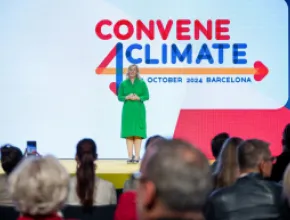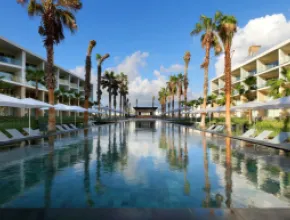Not only is it a very important decision in real estate, it is also the most important decision a green meeting professional can make. Choosing a destination that is conducive to the event’s purpose, takes into account the location of attendees and is environmentally responsible is integral to producing a green meeting. Or in other words, if you choose a location with green hotels and meeting venues to begin with, your job will be MUCH easier.
The first step is considering these important factors:
Understand the event’s purpose and the attendees’ geographic locations.
When choosing a destination, ensure it meets the organization’s purpose for the meeting. Is it a board retreat, a fund-raiser, an incentive trip, a live event or an industry conference? The answer to this question will let you know where in the world to hold the event and how close to mass transit or an airport is appropriate.
Where will the attendees be coming from? Determine a site that requires minimal travel for all participants. There is a calculator now available to help with this step: www.bestplacestomeetgreen.com/calculator.
Evaluate all aspects of the city and venue.
Weigh all the factors related to the city. Is the city’s mass transit system adequate? Is it linked to the airport? Does the city publish walking maps? Are hotels and restaurants within walking distance of the venue or accessible via public transportation? There is a new, free service where some of this work has been done for you. Take a look at www.bestplacestomeetgreen.com/scorecard.
Obtain a list of environmentally responsible organizations.
Ask the CVB for a list of venues, properties and suppliers that have environmental practices in place. More and more destinations are developing a list of green organizations. If the list is not available, your request is an excellent opportunity to drive the demand for green meetings and will provide an indication of how environmentally responsible the location is.
Include environmental criteria in the RFP and contracts.
When sending out the RFP for events, you should include environmental criteria. Specify the importance of environmental criteria in the site-selection process. For example, ask if the recycling of glass, aluminum, plastic, paper and cardboard is available in the city and implemented in the venues that are being considered. You can also ask about convenient public transit connections between the airport, hotels and the conference venue. Ask how many hotels in the conference package have a green certification. Cities that understand the importance of eco-friendly meetings will be more effective partners as you move into other aspects of managing the event. For accountability, it is important that green practices are included in contract language with all vendors.
While it is unrealistic to believe that all destination decisions will be made on environmental considerations alone, these factors can be important when choosing between comparable cities. The more a city and venue understand and embrace environmentally responsible practices, the easier it will be to green the event. If you eventually choose a city or venue based on environmental considerations, communicate this fact. It is important for cities and venues to know they either gained or lost business because of their commitment to the environment.





